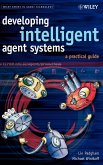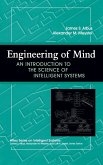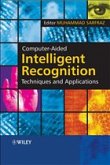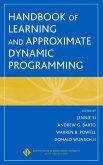Computational Intelligence: An Introduction, Second Edition offers an in-depth exploration into the adaptive mechanisms that enable intelligent behaviour in complex and changing environments. The main focus of this text is centred on the computational modelling of biological and natural intelligent systems, encompassing swarm intelligence, fuzzy systems, artificial neutral networks, artificial immune systems and evolutionary computation.
Engelbrecht provides readers with a wide knowledge of Computational Intelligence (CI) paradigms and algorithms; inviting readers to implement and problem solve real-world, complex problems within the CI development framework. This implementation framework will enable readers to tackle new problems without any difficulty through a single Java class as part of the CI library.
Key features of this second edition include:
_ A tutorial, hands-on based presentation of the material.
_ State-of-the-art coverageof the most recent developments in computational intelligence with more elaborate discussions on intelligence and artificial intelligence (AI).
_ New discussion of Darwinian evolution versus Lamarckian evolution, also including swarm robotics, hybrid systems and artificial immune systems.
_ A section on how to perform empirical studies; topics including statistical analysis of stochastic algorithms, and an open source library of CI algorithms.
_ Tables, illustrations, graphs, examples, assignments, Java code implementing the algorithms, and a complete CI implementation and experimental framework.
Computational Intelligence: An Introduction, Second Edition is essential reading for third and fourth year undergraduate and postgraduate students studying CI. The first edition has been prescribed by a number of overseas universities and is thus a valuable teaching tool. In addition, it will also be a useful resource for researchers in Computational Intelligence and Artificial Intelligence, as well as engineers, statisticians, operational researchers, and bioinformaticians with an interest in applying AI or CI to solve problems in their domains.
Check out www.http://ci.cs.up.ac.za for examples, assignments and Java code implementing the algorithms.
Hinweis: Dieser Artikel kann nur an eine deutsche Lieferadresse ausgeliefert werden.
Engelbrecht provides readers with a wide knowledge of Computational Intelligence (CI) paradigms and algorithms; inviting readers to implement and problem solve real-world, complex problems within the CI development framework. This implementation framework will enable readers to tackle new problems without any difficulty through a single Java class as part of the CI library.
Key features of this second edition include:
_ A tutorial, hands-on based presentation of the material.
_ State-of-the-art coverageof the most recent developments in computational intelligence with more elaborate discussions on intelligence and artificial intelligence (AI).
_ New discussion of Darwinian evolution versus Lamarckian evolution, also including swarm robotics, hybrid systems and artificial immune systems.
_ A section on how to perform empirical studies; topics including statistical analysis of stochastic algorithms, and an open source library of CI algorithms.
_ Tables, illustrations, graphs, examples, assignments, Java code implementing the algorithms, and a complete CI implementation and experimental framework.
Computational Intelligence: An Introduction, Second Edition is essential reading for third and fourth year undergraduate and postgraduate students studying CI. The first edition has been prescribed by a number of overseas universities and is thus a valuable teaching tool. In addition, it will also be a useful resource for researchers in Computational Intelligence and Artificial Intelligence, as well as engineers, statisticians, operational researchers, and bioinformaticians with an interest in applying AI or CI to solve problems in their domains.
Check out www.http://ci.cs.up.ac.za for examples, assignments and Java code implementing the algorithms.
Hinweis: Dieser Artikel kann nur an eine deutsche Lieferadresse ausgeliefert werden.








